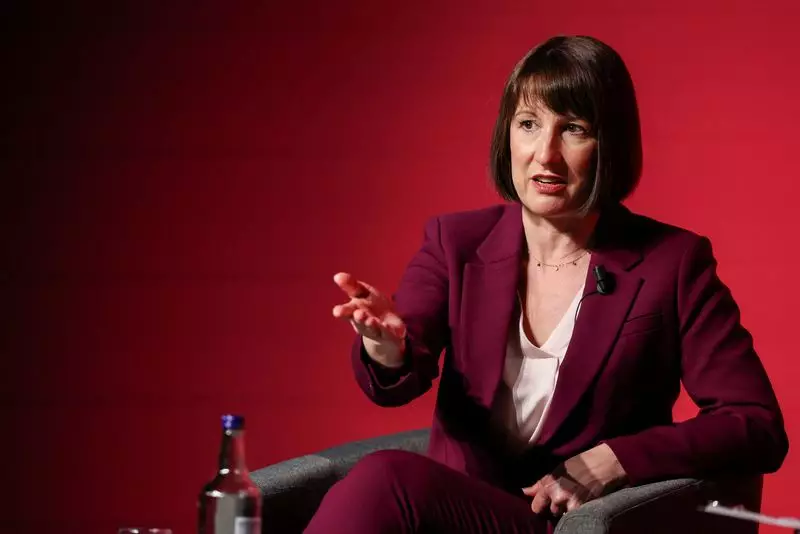As the UK prepares to embrace a new fiscal leadership under Finance Minister Rachel Reeves, the financial landscape appears daunting. An analysis by the Institute for Fiscal Studies (IFS) suggests that Reeves may need to implement a staggering £25 billion ($33 billion) tax increase in her first budget scheduled for October 30. This potential rise in taxation is aimed at securing vital public services such as prisons and police, which are pivotal for maintaining societal order and safety. Historically, fiscal policies often come under scrutiny when they require significant changes to tax structures, highlighting the delicate balance governments must maintain between public service funding and taxpayer burden.
The context behind this forecast is significant; during Labour’s recent election campaign, Reeves announced a more tempered vision, proposing £9 billion in tax increases. The IFS, however, presented a contrasting picture, indicating that to prevent public services from eroding as a fraction of the country’s economy, a far more substantial fiscal input will be essential. Such a critical assessment of the financial requirements reveals an urgent call for action from the new administration.
The potential tax overhaul is more than just a fiscal exercise; it relates intimately to the economic health of the nation. Paul Johnson, the IFS Director, emphasized the reality that increased taxation or borrowing – or more likely, both – will become crucial if the government wants to sustain its commitments to investment and public services. This sentiment reflects a growing consensus that the path forward must involve tough financial decisions, especially considering Britain’s economic backdrop, which features rising living costs and inflationary pressures.
What stands out in this scenario is the scope of the proposed £25 billion increase, which would constitute nearly 1% of national income. To draw a comparison, this figure is nearly twice as high as the tax increases that followed Britain’s last significant government transitions in 1997 and 2010, suggesting that the financial strain under Reeves could be unprecedented. The depiction of the public finances as being in a woeful state post-election has set a shaky platform for her administration.
The wake of Labour’s overwhelming election victory in July now feels paradoxical, with Prime Minister Keir Starmer’s popularity notably waning. This decline seems notably tied to unpopular policy decisions, including cuts to winter fuel subsidies which have sparked discontent among pensioners and other vulnerable demographics. In light of this, Reeves’ stance emphasizes resilience against adversity. A spokesperson indicated that while the inherited finances are challenging, they are determined not to let prior economic mismanagement dictate future outcomes. This rhetoric aims to inspire confidence in a populace weary of economic unpredictability.
To steer clear of past pitfalls, Reeves has outlined plans to revise the budgetary regulations that guide her ministry. The goal appears to be shifting towards targeting a balanced budget—excluding investment costs—rather than adhering to a stricter overall deficit of 3%. This proposed change indicates a willingness to prioritize long-term investment over short-term fiscal constraints. Nevertheless, this strategy also raises crucial questions about the redefinition of public debt limits, which the IFS estimates could open avenues for an additional £50 billion in borrowing.
The financial projections have stirred a ripple of concern among international bond investors, signaling potential worries about the UK’s fiscal direction. Benjamin Nabarro, the chief UK economist at Citi, articulated these anxieties, remarking on the hesitance of foreign stakeholders who remain skeptical given past market turbulence, particularly during the ill-fated budget plans of ex-Prime Minister Liz Truss in 2022. This backdrop underscores a cautious sentiment towards the UK government bond market, which is now perceived as needing greater validation.
Reeves’ commitment to implementing “guardrails” around increased borrowing aims to instill confidence in the gilt markets, suggesting a disciplined approach to financial strategy. The notion of establishing a robust monitoring process resonates well within the financial community, positioning Reeves’ administration toward gaining trust as it embarks on an ambitious economic agenda.
As Rachel Reeves prepares to unveil a budget that could redefine the UK’s fiscal structure, the stakes are undoubtedly high. The challenges ahead necessitate both strategic foresight and a delicate balancing act to ensure that necessary public services are adequately funded without overburdening the taxpayer. With a looming tax increase on the horizon, the fiscal path adopted by Reeves will not only shape the nation’s economic framework but also influence the political landscape as public sentiment evolves. How well she navigates these tumultuous waters remains to be seen, but the implications of her decisions will echo well beyond her initial tenure.

